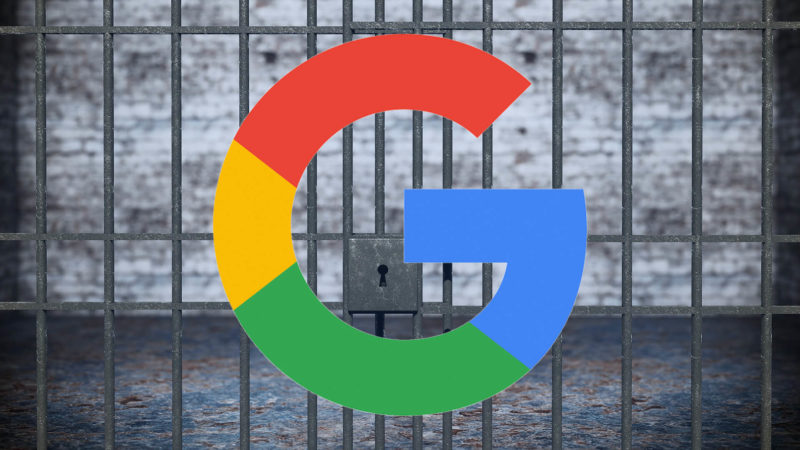Private blog networks: A great way to get your site penalized
Columnist Kevin Rowe explains what private blog networks (PBNs) are, how to identify them, and why you should steer clear.
You may have heard about private blog networks (PBNs) before, but you may not be sure what they are or why they are used. A PBN is a network of websites used to build links (and therefore pass authority) to a single website for the purpose of manipulating search engine rankings. This scheme is similar to a link wheel or link pyramid, as it involves several different websites all linking to one another or to one central website.
While these types of schemes were used commonly years ago, PBNs are now considered a pure black hat tactic and should be avoided at all costs, as they can lead to a loss in rankings, or even a manual penalty. PBNs usually provide little to no long-term value to the websites they are linking to.
Google has long been fighting PBNs, and businesses caught up in this shady tactic have been made an example of over the years. One such case was the J.C. Penney link scheme that was exposed back in 2011 by The New York Times. As Google gets smarter and develops better technology to combat link spam techniques, it has become harder and harder for black hat SEOs to pull off a PBN successfully.
How to identify private blog networks
The key to identifying a PBN is the cross-site “footprint” where much of the technical data on the sites are the same. Old PBN networks were on the same IP, shared servers, had the same WHOIS information, or even used the same content across sites.
Today, PBNs are much more sophisticated and may be harder for users to spot because the sites span different industries, topics and layouts. When determining if a site is part of a PBN — and therefore one that you should avoid like the plague — consider the following:
- Hosting. Are they all on the same IP? You can use SpyOnWeb.com or similar tools to identify what sites are hosted with any other site.
- Site design. Do the sites all use a similar design, navigation, color scheme?
- Similar themes. WordPress themes sometimes have the theme name in the code. Check the source code in your browser.
- Site ownership. Check WHOIS database for the contact information for the owner of the sites. Having hidden WHOIS data is a red flag. If all of the site owners are the same, it’s obvious the blogs are connected.
- Duplicate content. Copy a paragraph into Google search to see if the content exists on other sites.
- Backlink profile. Check the backlink profile in Ahrefs or Majestic (these are the largest databases of links) to see how much interlinking is occurring between sites.
- Images and videos. Since videos and images are difficult and expensive to recreate, these are likely going to be duplicated on other sites. Use Google image search or video search to find similar pieces.
A dead giveaway for many PBNs is having a similar backlink profile. If multiple sites have the same link profile, or if they all link to one website multiple times (especially where it seems like overkill or it isn’t relevant), then the site is likely part of a PBN — or, at the very least, is selling links. Google’s Penguin algorithm, which now runs in real time as part of the core ranking algorithm, can detect these kinds of schemes and devalue your website rankings as a result. In some cases, you could even wind up with a manual penalty.
However, simply owning several different websites doesn’t mean you are a private blog network. For example, media companies that own several sites and link to them in all website footers wouldn’t likely have to worry about being flagged as a PBN unless the websites weren’t related, there were dozens of links in the footers, or they were linking to similar internal pages repeatedly.
In addition, PBNs are generally groups of sites all owned by one company or individual, but separate individuals who are working together to link to one another could also be considered a PBN if there is a pattern of repeatedly linking to the same sites or pages across several different groups of websites.
How can you protect your site from PBNs?
No reputable SEO consultant will recommend private blog networks for link building or increasing website traffic. Unfortunately, your site may be involved in a PBN without your even knowing it, especially if you are outsourcing your link building activities to a third party. Buying links on sites like Fiverr or through other services may put your site in grave danger. And if anyone tries to convince you to participate in a link exchange (i.e., trade links with them), run.
Strong oversight of link-building activities is key. Educate yourself on which practices Google considers to be link schemes, and ensure that anyone responsible for building links to your site is strictly adhering to these guidelines; any reputable link builder should agree to be transparent about the links they are pursuing for you.
This will require some effort on your part, but remember: Just because you aren’t aware of what goes on behind the curtain doesn’t mean you won’t be held responsible for the consequences.
Best practices will ultimately win the day
You might feel frustrated by competitors who appear to be using spammy link-building techniques like PBNs. You could report them through a webspam complaint, of course. But even if you don’t, remember that their black hat tactics will eventually catch up to them.
While your competitor is relying on a PBN to get links, your company can build out more robust link-building campaigns based on best practices that have more staying power and aren’t frowned upon by search engines. Then, when your competitor gets busted and is demoted, deindexed or otherwise penalized, your site will have the advantage.
As a whole, private blog networks are a dangerous and unacceptable link-building strategy. A link should only be given when it truly provides value to the user — anything to the contrary may result in less visibility within search engine result pages, or even a manual penalty.
Save yourself and your company the headache of lost money, resources and time, and focus on better link-building tactics that will get you results without the strife.
Contributing authors are invited to create content for Search Engine Land and are chosen for their expertise and contribution to the search community. Our contributors work under the oversight of the editorial staff and contributions are checked for quality and relevance to our readers. Search Engine Land is owned by Semrush. Contributor was not asked to make any direct or indirect mentions of Semrush. The opinions they express are their own.



